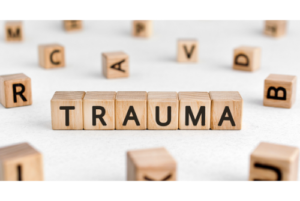Every morning when you open the newspaper or switch on the news, you see reports of rape, assault, violence, thievery and death. Even if you don’t read or watch the news, you are constantly bombarded with updates, images and videos via social media.
It is important to report injustice, and traumatic events tend to be reported extensively in the media. And you are privy, now more than ever, to every little terrifying detail. In bold print. Nirbhaya. Arushi Talwar. Keenan-Reuben. People that you do not know but whose names immediately bring with it a host of memories.
Such reporting almost seems ubiquitous. Regardless of the extent and intensity of the incidents reported, all of us have developed our own reaction towards it.
At Inner Space, in our monthly team meeting, we started discussing the traumatic nature of these events and realized that most of us as well as our clients were affected by them in some way. The reactions we spoke about were that of anger, a deep sense of being on the receiving end of injustice and at some level, helplessness. There’s anger against the system, the perpetrator, the environment; and anger towards the self as well. While discussing, we realized that the psychological effects of these news reports can be far-reaching. Sadia, our head psychologist and the team of psychologists got together and jotted down what some of these effects might be and how we can cope with them in a healthy manner.
Why do people go through psychological trauma after these news events?
Most of us have experienced some of these reactions- either fear, or rage, or disgust or even indifference; we wonder why do these tragic events leave such a deep impact? Is it due to repeated telecasting, regular updates, sensationalism or just the increasing number of incidents?
Research in this area indicates that this so-called “Breaking News” leads to anticipatory anxiety; and its sensational nature preys on our pre-existing fears. Sadia explains further, “Negative events trigger us and arouse our alarm response. These events keep us invested and involved, either due to feeling bad for the affected parties, or due to worrying about our own safety.”
Most importantly, these events shatter the Illusion of Invulnerability: We move through life assuming that catastrophes happen to other people and not to us but when we hear of it happening to people, just like us, people who probably stay or work in the same area as us, the possibility of it happening to us now becomes real and plausible.
“When one reads about a traumatic article through any medium, one shifts from feeling ‘it can’t happen to me’ or ‘these things happen with other people’ to feeling ‘oh! I am also someone who this can happen to’. You start feeling very vulnerable because there is a sudden shift from thinking something will not happen to me to being almost certain that it will happen.”
This shatters the illusion of invulnerability and leads to anxiety which feeds on our fears. The unpredictability of these events only adds to this.
Here is an especially curated playlist of exercises by Sadia, to help you deal with trauma and emotional overwhelm
How do people react to traumatic news?
1) Increased Anxiety:
When we feel vulnerable, most of us start feeling anxious and worried about our safety or that of our loved ones. We become guarded, cautious and start to avoid situations or places that now seem threatening to us. But the effect of negatively valenced news is much broader than that – it can potentially intensify a range of personal concerns that is not even relevant to the content of the negative event itself. A recent study conducted in 2012 found exactly that: those people who had watched the negative news bulletin in the study spent more time thinking and talking about their worries and were more likely to catastrophise their worry. Such situations do call for precautions, and it is difficult to cope with them.
“With excessive fear, people lose out on the aspect of living, and create limits on their freedom. For example, if we have a car accident, do we totally quit driving or do we figure out, accept and get on the driver’s seat again. Even though it’s going to be extremely difficult, it is upto us to decide, which direction gives us a way to breathe more freely.”
2) Increased Risk-Taking:
Nandita also points out to another polar reaction, “As a defense against vulnerability, people at times place themselves in danger to tempt fate.” Risk-taking and stimulation-seeking is seen to increase here. Individuals will do risky things, things that would not have done otherwise- drink those few extra drinks, cancel their insurance policies, rash driving- this makes people feel like they are not afraid of negative outcomes. The added adrenalin rush makes them feel strong and provides an illusion of control.
It is not that those of us who turn to risk-taking as a defence are not worried or afraid. In fact, the very people who tempt fate by neglecting to protect themselves from possible negative outcomes are ironically those who feel that these negative outcomes are more likely to happen to them. (Risen and Gilovich, 2008)
3) Desensitization:
Desensitization can occur after repeated exposure to negative news events. A diminished emotional responsiveness sets in which almost seems like apathy or indifference. This is especially seen in reaction to violence-related news events.
“When we first see a horrific news story, it produces a number of aversive responses such as increased heart rate, fear, discomfort, perspiration and disgust. However, prolonged exposure to violence in the media makes these stories seem a part of everyday life and people get habituated to it ; and eventually, violent images no longer elicit these negative responses.”
We as news viewers thus, tend to become emotionally and cognitively desensitized to violence in the media. Malini, states that “This desensitization can permeate into your everyday routine as well and a general indifference can set in. Slowly, happiness gets eroded out of even simple pleasures like walking down the street, or traveling by the train.”
What are the positive coping strategies that can help us?
Most of us get caught in certain cycles of negative thoughts and emotions when faced with these news events. It becomes difficult to move past this into a healthier, calmer space. We have outlined certain ways in which you can learn to cope with this situation:
Working with Negative Thoughts:
1) We are affected in some way or the other by these events, and we either set in precautions or put up defenses to help us cope with them. It is however, important to recognize whether our reaction is healthy or unhealthy. Being worried and concerned for our safety is a natural and healthy reaction, but becoming paranoid and controlling of every possible event is an unhealthy reaction. We end up perceiving minor, harmless things as signs of major threats to our survival due to which we stay in a suspended state of feeling like something bad could happen anytime.
“There is a deep wish to avoid or prevent such negative occurrences from happening to you. If you think about it, all the anxiety arises out of a deep wish to avoid. The wish to remain safe is natural; it is basic human instinct. One needs it to survive. However, this avoidance is coming at a cost to you. It’s coming at the cost of your very well being.” In the same vein, being strong and continuing living your life as you have is a healthy defense but trying to tempt fate by putting yourself in obvious danger is not.
2) “You must realize that the probability of such an incident happening with you does not increase just because it has occurred with someone you know or could possibly know.” Anusha agrees that we tend to overestimate this probability in the aftermath of these events, “Unfortunately, it is true that bad news tends to stand out and get reported. We don’t hear about the plane that landed safely or people who have been treated fairly. We need to be reminded that what we see on the news does not represent the way things are everywhere, everyday.”
3) A simple practical guideline to employ is that if you find that you are feeling too anxious or stressed after watching a news program or having trouble sleeping or going about your general routine, you may want to consider limiting the amount and type of media coverage that you are viewing. Switch off the tv, stop viewing horrific pictures of the events online or in the newspapers.
4) Do not isolate yourself. Find a way of expressing your feelings- talk to friends or on online forums or even take some constructive action like volunteering or helping out those who are affected by the trauma.
Working with Negative Emotions:
Besides working with negative thoughts, it is also important to work with the unpleasant emotions that underlie these thoughts. Research also shows that attention-diverting distraction (i.e., listening to a lecture, going out) help only temporarily. Directed psychological intervention such as progressive relaxation and actually working with negative emotions helps in the long run. “Firstly, it is important not to belittle or berate your feelings or compare with how other people are responding to the event. This just tends to create secondary anxiety and weighs you down.”
1) Stay connected to your emotions: “It is impossible to not be affected”, states Sadia. Start by being conscious and mindful of your emotions, aware of your patterns. If you are feeling sad and feel like crying, allow yourself to. If you have built up your defenses, recognize their pattern.
“By staying connected to your emotions and the way you are feeling, you feel rooted in the present and are better able to cope with the situation. When we deny or disconnect from the way that we feel, we are more likely to shift to an extreme position and exacerbate what we are feeling.”
2) It is important to check what reaction you are experiencing. This can be a key to an unacknowledged or unresolved emotion within you.
“By attending to these signals, whether it is that of fear or anger, it can help. Just setting down with ourselves, letting ourselves feel completely be it sad, anxious, or whatever it may be, and seeing in what areas of our life do we experience such similar emotional states can help us cope and deal with these feelings.”
3) When you feel like you are not able to handle or cope with the situation, take support from family members or friends. If you find it overwhelming to deal with, you can also take a step towards working with these concerns in counseling or therapy. On an individual level, it is important to work with our emotions and our resulting cognitive biases.
The team concludes that “It is no longer an individual’s issue or a person’s alarm; it is becoming the foundation of the entire social order, we chew negativity and feed our fear, we demand it by paying excessive attention and therefore it gets supplied. Slowly we build a social order that’s rests on fear, which imaginably constantly threatens our survival and well being.”
Feel free to share your opinions and perspective on how traumatic news reports affect you and the people around you, in the comments section below.
Image Credit: John Rag
about the author
Inner Space Team
share this blog!
Resources for Trauma
Trauma Resources If you are experiencing, or have experienced trauma,...
Read MoreHow Developmental Trauma Causes Psychosomatic Symptoms : World Health Day Series
This is the second sharing in our World Health Day...
Read MoreIT’S AN UNPLEASANT THOUGHT, NOT A FACT
“My life is pathetic” “Others are so much happier than...
Read MoreVICARIOUS TRAUMA AND PTSD
We suffer for stressful events that occur in our own...
Read More





